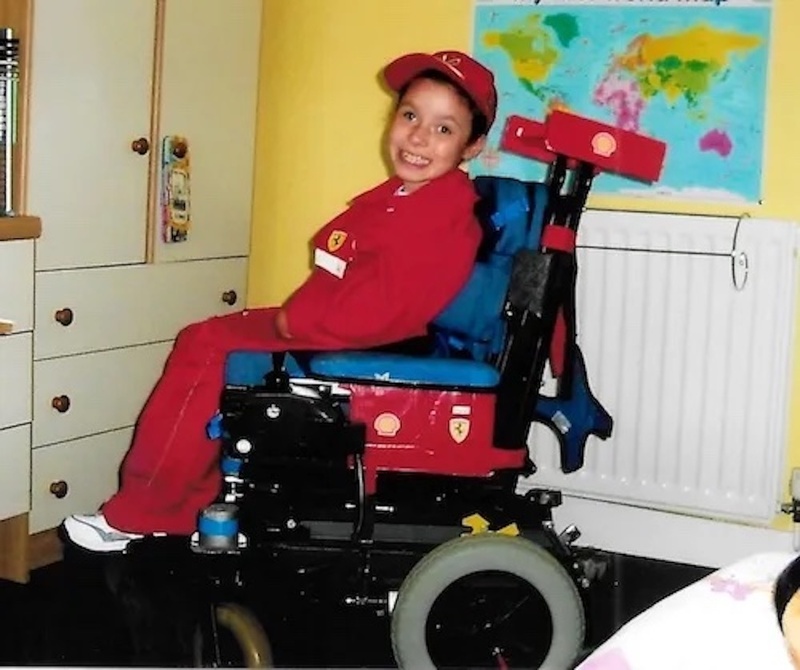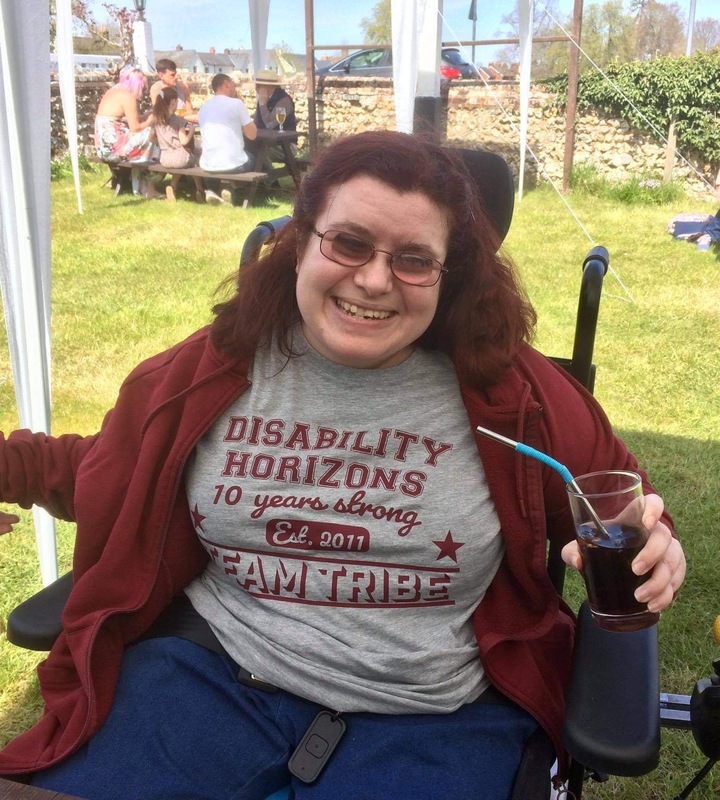Disability History Month - a letter to my younger self
The theme for this year’s Disability History Month is “Children and Youth”. To mark the occasion, our Ambassador Emma Purcell has written a letter to her younger self, highlighting the achievements and challenges she has faced as a disabled person.
Dear Emma,
The year is 2023 and you’re two months away from your 30th birthday. So far you’ve lived through eight Prime Ministers, two Head Monarchs, Brexit, and a worldwide pandemic. At this time in your short life, you are probably thinking about whether you’ll complete school, gain qualifications, get a job and live independently. Well, the short answer is yes, but maybe not in the most conventional way.
It's cool to be a wheelchair user
Being diagnosed with cerebral palsy brought a lot of uncertainty as to what your quality of life would be. However, you proved all the professionals wrong and thrived.
After trying out at a special needs preschool, the staff felt you would be better off at a mainstream nursery. You attended Sunbeams, a local nursery located on the school grounds of what would later be your infant school.
For the next seven years, you flourished through primary school and were always keen to participate in classes. As the only pupil in a wheelchair, your school did an amazing job of including you in every part of the curriculum. The schools provided height-adjustable tables in the classroom, gave you additional time to complete certain tasks in lessons, and even invested in adaptive sports equipment for PE lessons. You also had support and equipment to access the toilet and do physiotherapy.
The best thing about primary school was that the other pupils thought being disabled was really cool. The kids were all fascinated by your wheelchair. Many children wished they were in a wheelchair too. Even one girl wished to break her leg and use a wheelchair just so she could come with you to the same secondary school.
One of your nicknames was Michael Schumacher, named after the Formula One racing driver because you would speed down corridors and around the playground. This inspired you to dress up as him for Sport Relief, transforming your wheelchair into a race car.

Image Credits: Emma Purcell
By the time you finished primary school, you felt anything was possible and were flooded with goals, ambitions, and dreams.
Experiencing sight loss
Due to your physical disability, you were unable to attend the same secondary school as your primary school peers. Therefore you attended another mainstream school, which included several disabled students who were provided additional support.
Initially, you were very excited about this new venture and began to settle in well. However, two weeks in, you were struck with pain in your left eye and were rushed to hospital. After a biopsy and many tests, you were confirmed to have vision loss due to a virus in your retina.
After a couple of weeks away, you returned to school feeling more lonely, isolated, and dependent on people due to your sight loss. Making friends was hard. You were bullied, and the staff could not accommodate your additional sight loss needs. This carried on for almost three years, dipping you into a pit of depression, and not knowing what the future holds for you.
Fortunately, you were rescued by the incredible community at Treloar’s, a school and college for people with disabilities. Not only did they get you through your GCSEs and A-levels, they inspired you to challenge yourself, take risks, and be who you want to be. You made friends for life and managed to do things you never thought you could do, such as attending gigs and festivals, which has been your ultimate love ever since.
Becoming a freelance journalist
Despite gaining the skills and confidence to be independent, I have to admit that reality has been much harder. You studied journalism at university but it wasn't a positive experience. Although you got the grades, securing employment was difficult. Luckily, you managed to find alternative ways to find work, and became a writer for the online magazine Disability Horizons. Over the next decade, you managed to publish over 300 articles for the magazine, interviewing dozens of people and gaining vital skills to plan, edit, and upload online content.
Image Credits: Emma Purcell
You also went on to discover other work opportunities. This has included creating your own blog, Rock For Disability, becoming an Ambassador at AccessAble and most recently becoming a proud co-founder and editor of online disability magazine Crip Life™. Although making lots of money doing a job you love would be the dream, you have found that doing voluntary and freelance work can be just as fulfilling and rewarding as full-time employment.
Quality of care
Right now, you can’t wait to leave home, get your own house and live independently. But with your level of impairment, you will require long-term, complex care support. But unfortunately, the quality of care is not out there and the result is you will continue to be dependent on your parents.
This does feel frustrating and unfair, but in some ways, you should feel grateful and appreciative for your parent's support rather than that of of substandard and unsafe carers.
For the next 30 years
Though you don't know it yet, you will achieve so much in your life. You will continue to face physical and societal barriers along the way, but with your determination, optimism, and ability to adapt and compromise, you will continue to thrive and make every day count.
Can you relate to the experiences and challenges Emma has faced as a disabled person?


